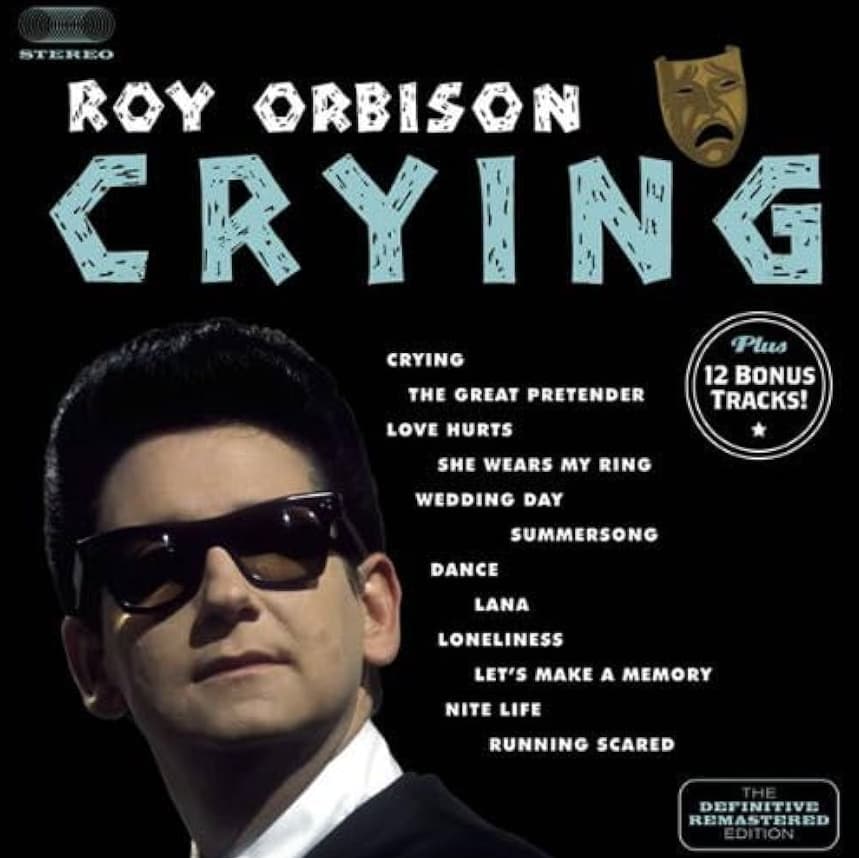
Roy Orbison – A Haunting Elegy in “Crying”
Roy Orbison’s “Crying” is an emotional tour de force, a ballad that delves deep into the heartache of lost love with haunting clarity and passion. Released in 1961, the song quickly became one of Orbison’s signature hits, climbing to No. 2 on the Billboard Hot 100 and cementing his place as one of the most evocative vocalists of his time. With its soaring vocals, sweeping arrangement, and vulnerable lyrics, “Crying” remains a powerful anthem of unfulfilled love and enduring sorrow, resonating with listeners decades after its release.
Orbison’s vocal performance in “Crying” is nothing short of extraordinary. His range and control bring an intensity to the song that few singers could match, and the lyrics showcase a deeply personal take on heartbreak. The song begins with a simple confession: “I was all right for a while, I could smile for a while.” In these lines, he captures that fleeting moment of post-breakup strength before the sadness fully sets in. As the song unfolds, Orbison reveals his vulnerability, admitting that seeing his former lover has stirred up all the emotions he tried to bury. His voice trembles with raw emotion, making the listener feel the pain as if it were their own.
The beauty of “Crying” lies in its musical arrangement, which builds gradually, echoing the intensity of Orbison’s emotional journey. Beginning with a gentle piano line, the arrangement slowly adds layers of strings, drums, and backup vocals. This progression mirrors the rising wave of feelings Orbison describes, creating a sense of mounting despair and intensity. The orchestration swells dramatically during the chorus, where Orbison’s voice soars, almost breaking under the weight of his sorrow. His high notes are achingly beautiful, conveying an almost operatic level of passion and anguish that few rock ballads have captured so effectively.
Orbison co-wrote “Crying” with songwriter Joe Melson, and together they crafted lyrics that are both simple and deeply evocative. The repeated refrain of “crying” becomes a powerful expression of his inner turmoil, transforming what could have been a simple song about heartbreak into an anthem of grief. The raw honesty in lines like “It’s hard to understand, but the touch of your hand can start me crying” speaks to the lingering impact of love lost. Even the smallest reminder of the past stirs up emotions he can’t contain, a sentiment that resonates with anyone who’s experienced a breakup that leaves lasting scars.
Since its release, “Crying” has been covered by numerous artists, each drawn to its timeless portrayal of love and loss. Notably, Orbison himself revisited the song in 1987 with a re-recorded duet version featuring singer k.d. lang, which earned a Grammy Award. This renewed version reintroduced the song to a new generation, showcasing its emotional depth and Orbison’s enduring influence on the music world. His rendition remains iconic, demonstrating that the song’s core themes are universally relatable and timelessly moving.
In the broader context of Orbison’s career, “Crying” solidified his reputation as a singer who could transform personal pain into art. His ability to convey complex emotions through his voice and lyrics is unparalleled, making him a unique figure in rock and roll. Unlike many of his contemporaries, Orbison didn’t shy away from vulnerability, instead embracing it in a way that felt both genuine and deeply affecting.
For anyone who has ever experienced the sting of unrequited love or the pain of a breakup that leaves a lasting mark, Roy Orbison’s “Crying” is a cathartic listen. It’s a song that reminds us of the depth of human emotion and the ways in which music can help us process even the most profound heartbreak. With its sweeping melodies, powerful lyrics, and Orbison’s unforgettable performance, “Crying” stands as one of the most moving ballads in rock history, a timeless testament to the enduring power of love and loss.